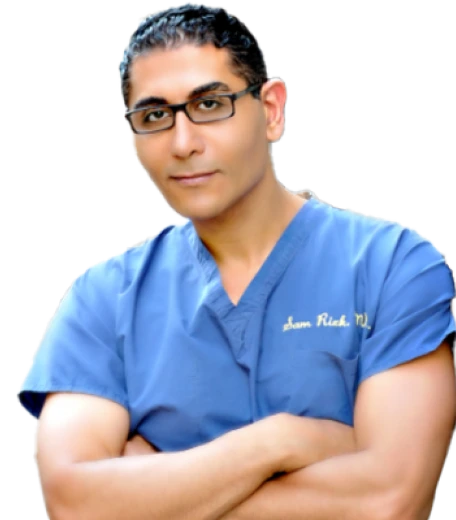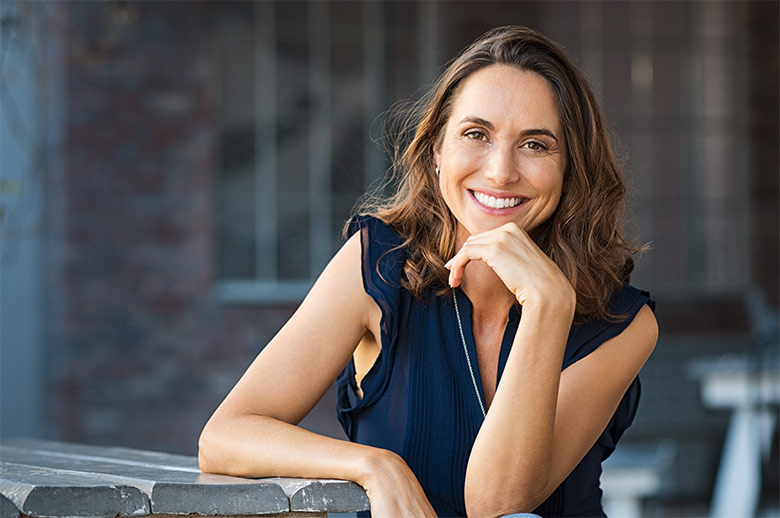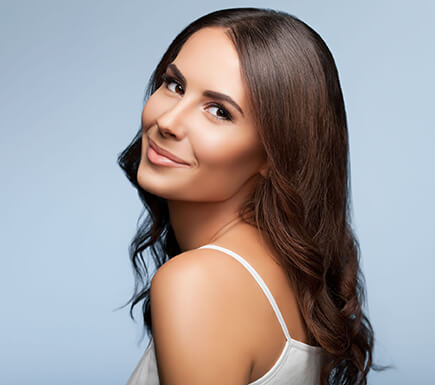Facelifts are one of the most popular cosmetic surgical procedures in the US. In fact, they were the third most common plastic surgery procedure in 2020. For those who wish to look younger and rejuvenate their face, it’s a long-lasting option that improves confidence and naturally enhances the face. However, many people hesitate, wondering whether they’ve missed the window. Dr. Sam Rizk, double board-certified facial plastic surgeon in New York, explains the best age for facelift, and shows why the ideal age for facelift hinges more on your skin’s condition and personal goals than on the number on your birthday cake.
At What Age Should I Get a Facelift? Debunking Myths About Age Limits
While the average age for facelift surgery is 40-60, you may be pleased to know that contrary to popular belief, there is no specific age limit for facelifts, and there is no best age for facelift surgery. While age is one consideration in determining eligibility for facelifts, it’s certainly not the only factor. The pros and cons of each age group include:
Late 30s to Early 40s
Fine lines around the mouth and early jowling can appear at this stage. When skincare and injectables no longer hold the line, a mini lift can discreetly reset your jawline before major sagging sets in. Many patients consider this window the best age for a mini facelift because recovery is quick and results are subtle yet lasting.
Mid-40s to Early 50s
Skin elasticity declines more sharply now, and deeper folds form around the nose and chin. This bracket falls within the average age for facelift surgery, delivering noticeable yet natural-looking rejuvenation. Skin still rebounds well, scars settle discreetly, and the lift can keep pace for years.
Mid-50s to 60
Gravity has worked longer, but healthy individuals still achieve excellent lift and longevity from surgery. At this age, for facelift procedures, deeper tissue tightening and precise fat repositioning restore youthful contour, frequently paired with neck refinement to harmonize the entire lower face.
Late 60s and Beyond
Even in your late 60s or 70s, a facelift can be safe and rewarding when performed by an experienced surgeon such as Dr. Rizk. Healing may take a bit longer, yet modern techniques reduce risk and deliver meaningful results. Ultimately, the best age for a facelift may simply be when you’re ready and medically cleared.
Rejuvenation at Any Age: Benefits and Drawbacks of Facelifts for Older Individuals
Facelifts can provide significant benefits for older individuals, such as increased confidence and improved self-esteem. The procedure can address sagging skin, wrinkles, and other signs of aging, resulting in a more youthful appearance. During consultation, Dr. Rizk assesses each patient’s unique features and goals, and customizes each surgery, like the face; no facelift surgery is ever the same.
However, there are also potential drawbacks to consider, especially for those in their 70s and 80s. The recovery period may be longer, and there may be an increased risk of complications, such as bleeding or infection. Dr. Rizk discusses these with all of his patients to ensure they can make an informed decision regarding any potential cosmetic procedures and their outcomes.
He also notes that individual circumstances play a significant role in determining whether the benefits outweigh the risks. For example, an individual with significant sun damage or a history of smoking may not be a good candidate for a facelift, regardless of their age.
Why “Best Age” Isn’t One-Size-Fits-All
Chronological age is only one factor; genetics, sun exposure, weight changes, and lifestyle all influence how and when you age. Two people born in the same year can show entirely different degrees of skin laxity. Rather than fixating on the average age for facelift, focus on visible changes and overall health. The best age for a facelift is the point when your appearance no longer reflects how vibrant you feel inside, and you’re a sound surgical candidate.
Timing Is Everything: Factors to Consider When Deciding on a Facelift
Deciding to undertake a facelift is a highly personal decision that should be made after careful thought and consideration of individual desires and circumstances. Dr. Rizk advises that people should have realistic expectations about the results, discuss their goals with a surgeon of their choice, and choose when to get a facelift only when they are ready.
He also stresses the importance of choosing a qualified and experienced surgeon, as this can greatly impact the success of the procedure, along with its longevity. Additionally, he recommends that patients prepare for their surgery by quitting smoking and avoiding certain medications that may increase the risk of complications.
Are You Ready to Take the First Step in Looking and Feeling Better?
Facelifts are not just for younger people in their 40s and 50s. While age is a factor in determining eligibility, there is no specific age limit for the procedure.
Ultimately, the best age for a facelift varies from person to person. The decision to undergo a facelift should be based on individual goals and circumstances, and should be made after careful consideration and consultation with a qualified surgeon, like Dr. Sam Rizk.
Are you considering a facelift, want to know more about the procedure, or if you’re a candidate? Schedule a consultation with Dr. Rizk, an internationally-renowned double board-certified facial plastic surgeon based in Manhattan, New York.














